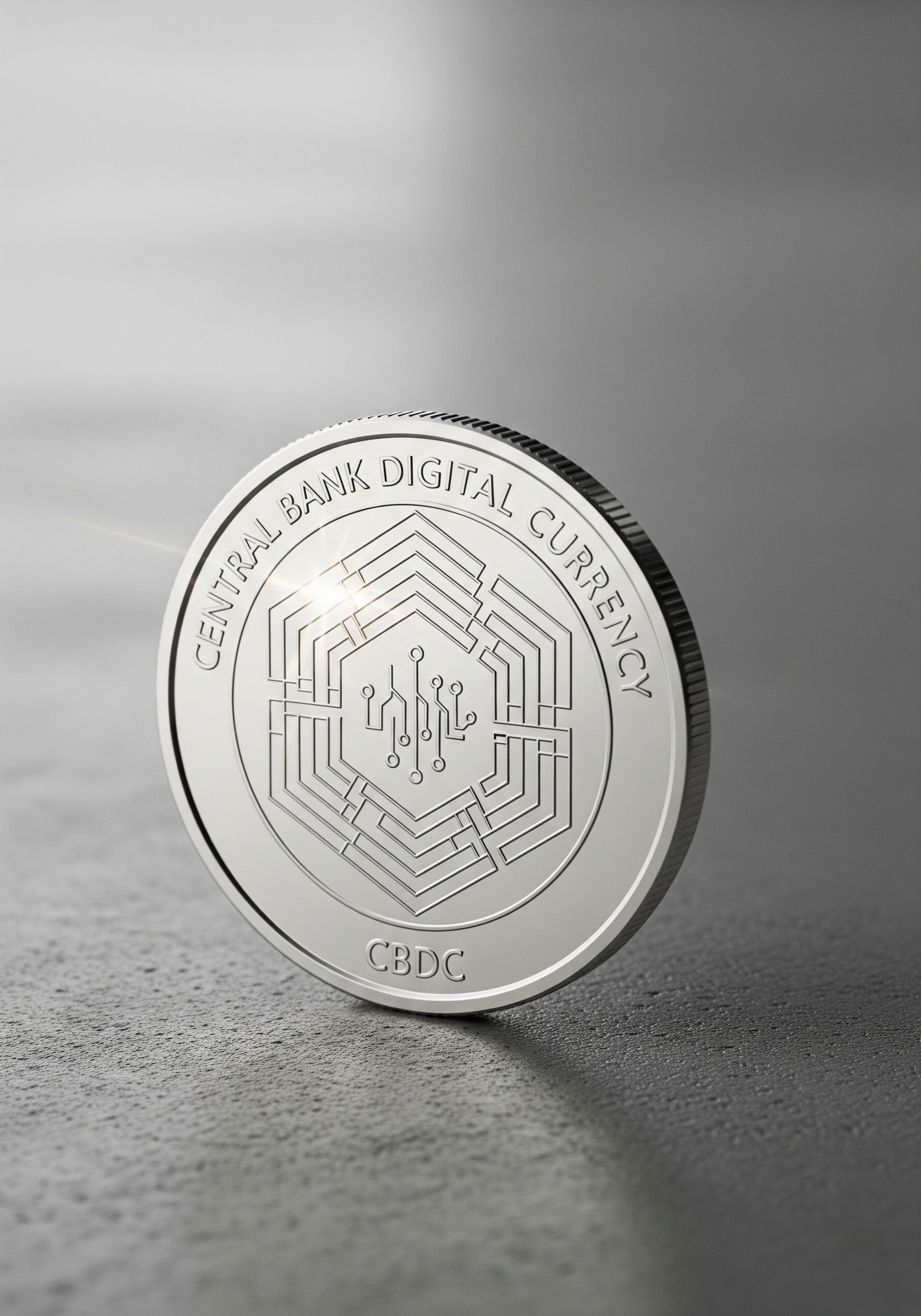FLEXBLOK: Fighting Fraud,
Simplifying Audits, Ensuring Compliance
Get Free Use Cases
Check Cashing & Money Services Businesses (MSBs)
Sophisticated fraud and manual audits costing your MSB? Discover tamper-proof traceability with blockchain.
Regulated Stablecoins & Digital Payments
Using stablecoins but unsure about compliance? Leverage blockchain for built-in KYC, geofencing, and auditability across digital payments.
Digital Assets & Tokenization Platforms
Struggling to manage and audit digital assets across wallets? Blockchain provides immutable trails for verifiable auditing.
Regulated Stablecoins & Digital Payments
Introduction As enterprises rapidly adopt stablecoins for real-time settlements, programmable finance, and cross-border operations, regulatory compliance has emerged as the critical bottleneck. Whether issued on public blockchains, stablecoins demand embedded controls to consistently meet the rigorous demands of frameworks like MiCA, FATF, and national regulators.
Challenges
No Native KYC/AML Enforcement
Cross-Jurisdiction Compliance Failure
Poor Visibility for Audits and Reporting
Lack of Granular Transaction Controls

Why These Challenges Matter
Key Insight:
94% of central banks are currently exploring regulated digital currencies, as of 2024. This widespread exploration underscores that compliance is the foundational layer for enterprise trust and broad adoption in this critical financial transition.
Solution
Flexblok’s Compliance Solution for Stablecoin Use
Programmable Policy Modules
Support the implementation of enterprise-defined limits and custom logic (e.g., daily transaction caps, escrow conditions, multi-party approvals) even for stablecoins operating on public chains, embedding compliance directly into workflows.
KYC-Integrated Wallet Identity
Link wallet addresses directly to verified Decentralized Identifiers (DIDs) or existing KYC profiles, allowing for safe, auditable interactions with known and verified counterparties.
Geofencing & Regulatory Logic
Automatically prevent stablecoin use in banned jurisdictions or apply local regulatory requirements and taxation rules at the transaction level, ensuring strict adherence to geographical mandates.
Real-Time Transaction Filtering
Enforce dynamic blacklists, whitelists, and country-specific rules and policies before transaction approval, preventing non-compliant activities in real time.
Automated Compliance Reporting
Generate regulator-ready audit logs and detailed reconciliation records, meticulously mapped to user IDs and specific use cases, significantly simplifying reporting and audit processes.
MiCA & VASP Toolkit
Deploy pre-configured templates and APIs that conform to critical regulatory guidelines such as MiCA stablecoin requirements, accelerating compliance readiness out-of-the-box.
Digital Assets & Tokenization Platforms
Introduction As enterprises rapidly adopt stablecoins for real-time settlements, programmable finance, and cross-border operations, regulatory compliance has emerged as the critical bottleneck. Whether issued on public blockchains, stablecoins demand embedded controls to consistently meet the rigorous demands of frameworks like MiCA, FATF, and national regulators.
Challenges
Auditing Assets Across Diverse Wallets
End-to-End Traceability & Compliance
Real-Time Audit Limitations

Why These Challenges Matter
Key Insight:
A January 2025 Coinbase/EY survey highlighted regulatory clarity as the primary catalyst required for institutional digital asset growth. Concerns around fragmented KYC/AML rules and increased regulatory scrutiny on areas like DeFi (as seen with SEC focus in 2024) are identified as major barriers, underscoring the critical need for platforms supporting compliance frameworks like MiCA and enabling comprehensive, multi-wallet auditability.
Solution
FLEXBLOK for Digital Assets Auditing & Tokenisation
Compliance-First Infrastructure
Delivers infrastructure aligned with MiCA for enterprises engaging in digital assets and tokenization.
Verifiable Audit Trails
Immutable data anchoring and governed DeFi access enable secure, end-to-end traceability, while audit tools consolidate holdings across wallets to create tamper-proof, identity-linked records.
Simplified Regulatory Mapping
Automated reporting and real-time regulatory mapping simplify compliance across jurisdictions.
Check Cashing & Money Services Businesses (MSBs)
Money Services Businesses (MSBs), encompassing vital services like check cashing and money transmission, serve as critical financial access points. However, they operate in a high-risk environment, frequently targeted by sophisticated financial crime due to the nature of their services (e.g., immediate cash access, anonymity potential). This inherent risk profile, combined with rigorous regulatory obligations under frameworks presents significant operational challenges. Maintaining integrity against fraud, such as check washing, while ensuring compliance is crucial but difficult with traditional, often fragmented systems.
Challenges
Sophisticated Fraud Evades Traditional Controls
Real-Time Validation & Compliance Gaps
Lack of Transaction Traceability

Why These Challenges Matter
Key Insight:
FinCEN issued a fraud alert in Dec 2024 regarding MSB registration scams. The FTC reported over $24 billion in fraud losses in 2022, with check fraud being a significant contributor due to evolving tactics. Sophisticated schemes continue to challenge traditional detection methods in the MSB sector.
Solution
FLEXBLOK for Check Cashing & MSBs
Enhanced Fraud Prevention
Creates tamper-proof transaction and check records using blockchain to prevent fraud like check washing.
Real-Time Verification
Smart contracts verify data in real time against immutable records and verified identities, delivering cryptographic assurance.
Reduced Operational Costs
Automates reconciliation and verification, reducing manual effort.
Enhanced Identity Security
Integrates with existing ID systems and Decentralized Identity (DID) frameworks to strengthen KYC/AML and identity security.
Streamlined Compliance
Built-in identity verification and real-time audit trails simplify adherence to FinCEN regulations.
FLEXBLOK (BaaS) Platform: Engineering Trust, Traceability, and Auditability
Our modular, secure, and scalable Blockchain-as-a-Service is engineered to deliver the critical capabilities needed by financial institutions, digital asset firms, and accounting practices by providing inherent security, traceability, and auditability.
Cryptographic Security & Immutability
Leverage advanced cryptography and a distributed consensus mechanism (or verifiable security in permissioned networks) to ensure the confidentiality, integrity, and immutability of all recorded data, creating tamper-evident records.
Irrefutable Traceability
The platform automatically records a complete, chronological, and verifiable lineage of every transaction, asset movement, and workflow step, providing granular traceability from origin to completion.
Enhanced Auditability & Data Integrity
Provide secure, permissioned access to the immutable and traceable ledger via an Audit API. Support data integrity using methods like hashing and anchoring external data (e.g., IPFS) on-chain. This enables real-time, verifiable auditing, streamlined reconciliation, and reduced reliance on manual checks for all blockchain-recorded activities, including multi-wallet digital assets and automated accounting entries.
Enterprise-Grade Smart Contracts
Automate sophisticated financial logic, streamline B2B workflows (AP/AR), embed policy in payments, and manage compliant digital asset lifecycles within a secure and auditable environment, ensuring traceable execution.
Integrated Regulatory Compliance
Configurable layers, automated reporting, and secure identity/wallet linking built on the immutable and traceable ledger facilitate adherence to regulations like MiCA, AML/KYC, and FinCEN with verifiable proof. Includes Advanced Identity Management Framework with potential for DID.
Seamless Integration, Maximum Value
Robust APIs enable secure data exchange and seamless integration with legacy systems, ERPs, trading platforms, and external data sources, ensuring data integrity across interconnected systems. Supports Multi-Source Data Ingestion for comprehensive auditing. Ensuring a smooth transition and maximizing operational value.
Strategic Advantages for Financial Experts
Build Trust Through Verifiable Integrity
Establish unparalleled trust with customers, partners, and regulators by operating on a platform that ensures cryptographic security, data immutability, and verifiable records, fundamentally de-risking your operations against tampering and fraud.
Achieve Operational Excellence via Traceability & Auditability
Gain unprecedented visibility into financial workflows and asset movements with irrefutable traceability. Simplify complex reconciliation and audit processes (incl. multi-wallet digital assets, automated AP/AR) with real-time access to verifiable data, significantly reducing operational costs and enhancing efficiency.
Ensure Regulatory Certainty with Embedded Compliance
Proactively meet regulatory mandates (MiCA, AML/KYC, FinCEN) with features built on the immutable and traceable ledger, providing the verifiable audit trails and reporting capabilities demanded by authorities. Enhance compliance processes with advanced identity management capabilities, including potential DID integration.
De-Risk Innovation
Confidently explore new opportunities in digital assets, tokenization, and programmable payments, knowing your operations are built on a secure, compliant, and auditable foundation that meets institutional standards.
Gain Comprehensive Financial Visibility
Simplify reconciliation and auditing for complex financial data, including digital asset holdings across multiple sources and automated accounting entries, providing the transparency needed for sound financial reporting and strategic decision-making.
Case Studies

CBDC (Central Bank Digital Currency)
Explore how FLEXBLOK supports the piloting and implementation of regulated digital payment rails.

Fraud Prevention In Check Cashing Business
See how FLEXBLOK revolutionizes fraud prevention and compliance for MSBs.

Financial Accounting With Blockchain
Understand how blockchain enhances auditability and data integrity for accounting practices.
What Industry Leaders Are Saying About FLEXBLOK?
FLEXBLOK transformed our biosample lifecycle with a verifiable, tamper-proof system that enhances compliance and collaboration. Their expert team tailored the platform, providing a decentralized approach that strengthens trust, ensures regulatory readiness, and future-proofs our entire data infrastructure.
- Guillaume , CTO
Our research process was constantly slowed down by teams working with different data. We’re so thankful to finally have one shared, trusted Infrastructure for everything, as it lets our scientists focus on the science, not the data.
CMO
French biotech developing precision antibody‑drug conjugates
We were seeing increasingly sophisticated check fraud attempts across our network. It’s a significant relief to have the platform's digital notary function, to provide the concrete, transaction-level proof needed to effectively mitigate those threats.
CEO
U.S. based Start-Up Specializing in Check Cashing
Manual data gathering for regulatory audits was a major resource drain for our quality team. This platform's ability to create and maintain an immutable, real-time audit trail has been a significant operational improvement.
CTO
Leading U.S.-Based Pharmaceutical
Our process for verifying training data was taking up way too much of the team's time. We needed to log everything without ripping apart our pipeline. FLEXBLOK's APIs helped us create that verifiable history for every dataset, and now our team can access it in real time.
Lead Engineer
UK-Based AI Orchestration Platform
The platform itself is powerful, but what stood out was the support during integration. The team felt like an extension of our own, responsive, knowledgeable, and genuinely invested in getting it right. That kind of partnership is rare.
CTO
A New York-based SaaS company
Let’s Explore Your Use Case
Whether you're exploring blockchain integration or ready to scale a FinTech solution, our experts are here to guide you with proven frameworks and real-world experience.
Frequently asked questions
Everything you need to know about the product and billing.

